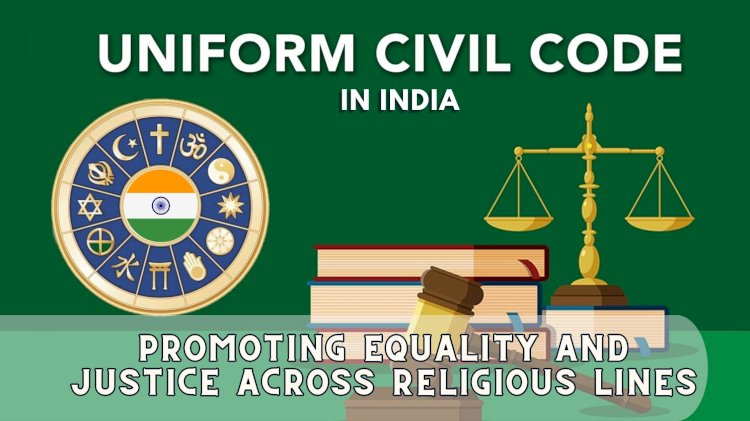Uniform Civil Code in India: Promoting Equality and Justice Across Religious Lines
The concept of a Uniform Civil Code (UCC) in India has gained attention and sparked discussions among the population. The UCC refers to a proposed set of laws that would govern personal matters for all citizens, irrespective of their religious affiliation. Currently, different religious communities in India follow their personal laws, leading to disparities and inconsistencies. The UCC aims to address these issues by providing a standardized framework for matters like marriage, divorce, inheritance, and adoption. Proponents argue that it would promote equality, justice, and national integration, while opponents express concerns about religious freedom and cultural identity. The debate surrounding the UCC has gained momentum in recent years and requires careful deliberation and consideration of diverse perspectives. The implementation of a UCC would necessitate engagement with various stakeholders to ensure an inclusive approach. Regardless of its outcome, the discussions on the UCC ref
By Shreya Rajvanshi Gangal

In recent times, the term "UCC" has been making headlines and creating buzz among the Indian population. UCC stands for Uniform Civil Code, and it refers to a proposed set of laws that would govern personal matters such as marriage, divorce, inheritance, and adoption for all citizens of India, regardless of their religion.
India is a country known for its rich cultural diversity, with various religions and communities coexisting harmoniously. However, when it comes to personal laws, different religious communities in India have their own set of rules and regulations. For instance, Hindus follow Hindu personal laws, Muslims adhere to Sharia laws, and Christians and others have their respective personal laws as well. This system, while designed to protect the religious and cultural rights of each community, has also led to inconsistencies and disparities.
The concept of a Uniform Civil Code aims to address these disparities and promote equality and justice for all citizens. The idea is to create a common set of laws that would govern personal matters, ensuring that all individuals, irrespective of their religious affiliation, are treated fairly and equally under the law. It would provide a standardized framework for issues like marriage, divorce, inheritance, and adoption, among others. The debate surrounding the implementation of a Uniform Civil Code in India has been ongoing for many years. Proponents argue that it would foster national integration, promote gender equality, and streamline legal processes. They believe that a Uniform Civil Code would help eliminate discrimination, protect individual rights, and promote a more progressive and modern society.
Opponents, on the other hand, raise concerns about the potential infringement on religious freedom and the erosion of cultural identity. They argue that personal laws are deeply rooted in religious beliefs and customs and should be preserved to maintain the distinctiveness of various communities. The discussion on the Uniform Civil Code has gained momentum in recent years, with both supporters and critics voicing their opinions. The matter has been the subject of debate in the media, political circles, and public forums, reflecting the importance and relevance of the issue in Indian society.
It is important to note that the implementation of a Uniform Civil Code would require careful deliberation, consensus-building, and consideration of diverse perspectives. The Indian government would need to engage with religious leaders, legal experts, scholars, and the general public to ensure a comprehensive and inclusive approach. As the dialogue on the Uniform Civil Code continues, citizens need to be aware of the discussions and understand the potential implications it may have on society. It is an opportunity to engage in constructive conversations, contribute to the discourse, and shape the future of personal laws in India.
Ultimately, whether the Uniform Civil Code becomes a reality or not, the dialogue surrounding it highlights the evolving nature of Indian society and the quest for equality, justice, and harmonious coexistence among its diverse population. The discussions surrounding the UCC will continue to shape the legal landscape of India and influence the country's journey towards a more equitable and inclusive society.
What's Your Reaction?



















